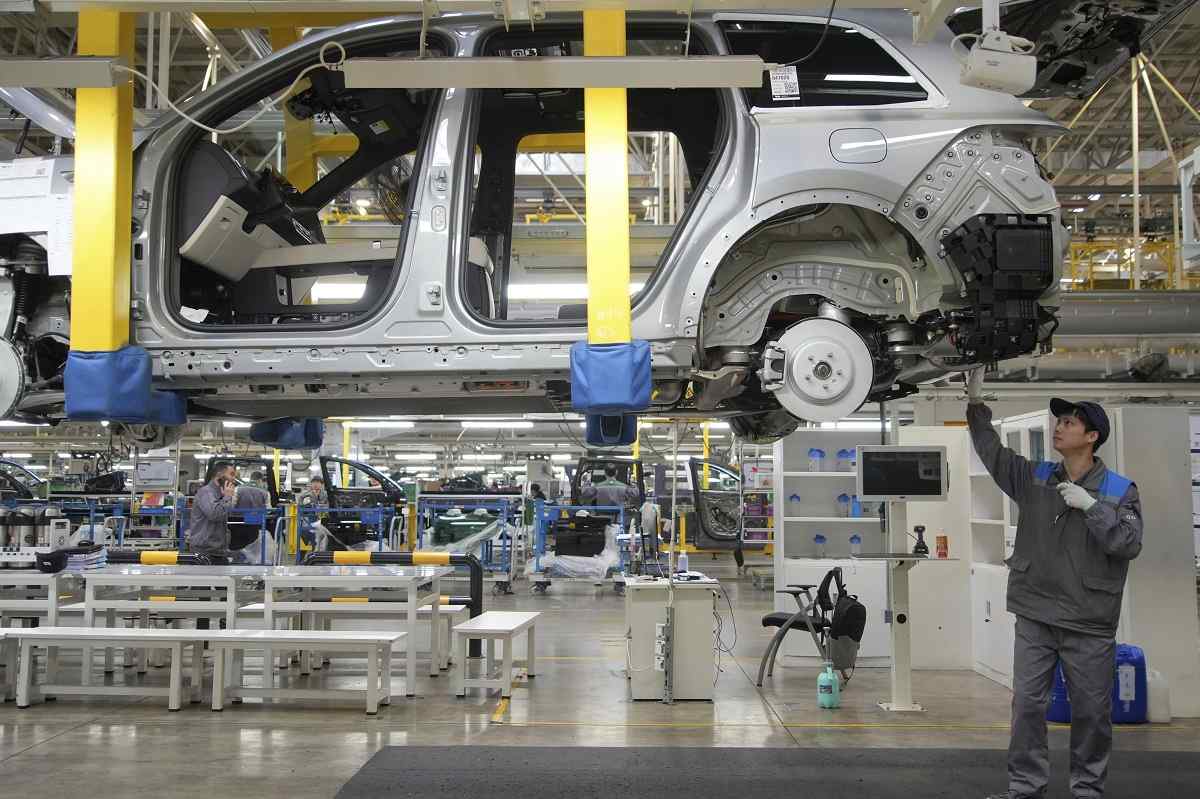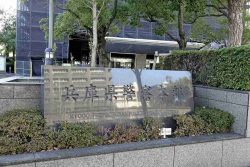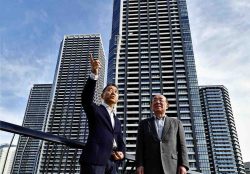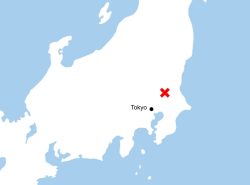
A worker assembles an SUV at a car plant of Li Auto, a major Chinese EV maker, in Changzhou in eastern China’s Jiangsu province on Wednesday, March 27, 2024.
16:58 JST, March 31, 2024
BEIJING (AP) — Manufacturing in China expanded in March after contracting for five consecutive months, according to an official survey of factory managers released Sunday, suggesting a rebound in industrial activities following the Lunar New Year holiday.
The official purchasing managers index, or PMI, rose from 49.1 in February to 50.8 in March. The PMI is on a scale up to 100, where 50 marks the cutoff between expansion and contraction.
The monthly manufacturing PMI has mostly been under 50 over the past 12 months: Other than this month, factory activities only recorded an expansion in September.
National Bureau of Statistics senior statistician Zhao Qinghe said the market became more active as companies resumed and sped up production after the Lunar New Year holiday. Many factories stopped running during the holiday, with social media posts suggesting workers at some companies were off for as many as 140 days starting in late 2023 due to the lack of new orders.
Zhao said the survey also showed some problems for companies remained, including increasing competition in industries and a lack of market demand.
During the annual session of the National People’s Congress in March, China said it would encourage consumers to scrap old appliances and trade in their cars for electric vehicles to help spur more domestic demand. And it said 10.4 billion yuan ($1.4 billion) would go to upgrading industries and modernizing manufacturing.
Zhao said the policies promoting the trade-ins of consumer goods and large-scale equipment upgrades still needed further implementation to support the high-quality development of the manufacturing industry.
According to the survey released Sunday, the non-manufacturing PMI rose to 53 from 51.4 in February. The reading is the highest since June 2023.
The recovery of the world’s second-largest economy following the shocks of the pandemic faced many obstacles, one of the largest being a downturn in the real estate industry after authorities moved to curb excess borrowing by property developers.
The ruling Communist Party’s target is to grow the economy by about 5% this year, an ambition that economists say may be hard to attain.
"News Services" POPULAR ARTICLE
-

American Playwright Jeremy O. Harris Arrested in Japan on Alleged Drug Smuggling
-

Japan’s Nikkei Stock Average as JGB Yields, Yen Rise on Rate-Hike Bets
-

Japan’s Nikkei Stock Average Licks Wounds after Selloff Sparked by BOJ Hike Bets (UPDATE 1)
-

Japanese Bond Yields Zoom, Stocks Slide as Rate Hike Looms
-

Japan’s Nikkei Stock Average Buoyed by Stable Yen; SoftBank’s Slide Caps Gains (UPDATE 1)
JN ACCESS RANKING
-

Keidanren Chairman Yoshinobu Tsutsui Visits Kashiwazaki-Kariwa Nuclear Power Plant; Inspects New Emergency Safety System
-

Imports of Rare Earths from China Facing Delays, May Be Caused by Deterioration of Japan-China Relations
-

University of Tokyo Professor Discusses Japanese Economic Security in Interview Ahead of Forum
-

Japan Pulls out of Vietnam Nuclear Project, Complicating Hanoi’s Power Plans
-

Govt Aims to Expand NISA Program Lineup, Abolish Age Restriction

























